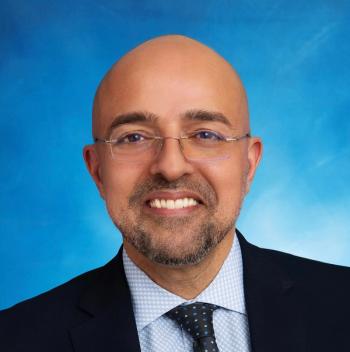
AHA Is Concerned ONC Could Stifle the Pace of Innovation
The organization represents the voices of health systems, physicians and caregivers.
The American Hospital Association (AHA) is concerned that the Office of the National Coordinator for Health IT’s (ONC) approach to Trusted Exchange Framework and Common Agreement (TEFCA) could disrupt innovation efforts currently underway, which grew since the first draft, according to the organization’s
AHA represents nearly 5,000 member hospitals, health systems and healthcare organizations, including more than 270,000 affiliated physicians, 2 million nurses and caregivers and 43,000 individual members.
Along with comments on TEFCA, the organization
“We recommend the agency focus on building this exchange infrastructure rather than layering additional requirements on hospitals,”
AHA also wrote in
The letter included concerns that the burden placed on hospitals and health systems to demonstrate that they did not information block when trying to ensure they are using information legally is too high.
AHA’s Concerns and Recommendations for TEFCA
AHA is concerned that ONC could stifle progress being made. If ONC dictates too many terms and conditions or the technical framework, the pace of innovation could be derailed. ONC should limit its involvement because the field is in the best position to push interoperability forward.
The organization is also worried about the removal of Fast Healthcare Interoperability Resource from the standards stack that Qualified Health Information Networks (QHINs) would be required to support.
ONC should broaden exchange purposes to include all payment and operations purposes allowed under HIPAA. Then, health systems could realize the single “on-ramp” concept ONC proposed.
AHA is concerned that updating participant and business associate agreements will take a lot of time and ONC is not taking that into consideration with its projected timelines. ONC should modify the minimum required terms and conditions to allow organizations to participate in exchange purposes they already support, while adding other purposes over time. The flexibility could allow for participation from more stakeholders while building greater exchange capabilities over time.
The letter to Rucker asks ONC to clarify in the minimum required terms and conditions and QHIN technical framework that the data requestor is responsible for collecting consent. ONC should also work with the recognized coordinating entity to specify how QHINs would communicate consent prior to sharing data.
It is also necessary for ONC to clarify data requirements for participants and members.
What AHA Supports
Ashley Thompson, senior vice president of public policy analysis and development of AHA, wrote in the letter that “the AHA is generally supportive of the overall concept of the TEFCA and ONC’s goal to create a voluntary network-of-networks that would enable hospitals to join one network and access all of their trading partners.”
Thompson noted that allowing for a second round of comments it beneficial to ensure that the goal can be met in a workable and useful manner for all parties.
The organization specifically supports the removal of population-level data requests until standards and deeper levels of trust exist and a recognized coordinating entity is selected.
AHA supports the modified structure of TEFCA, which results in two elements:
- The Trusted Exchange Network. A set of general core principles Health Information Networks should abide by.
- The Common Agreement. Composed of the minimum required terms and conditions, additional required terms and conditions and the QHIN technical framework.
Thompson wrote that AHA is supportive of ONC’s proposal in the minimum required terms and conditions that any organization participating in the Common Agreement must abide by HIPAA privacy and security requirements.
Final Thoughts
“ONC’s responsiveness to comments on the agency’s first draft of the TEFCA, including the addition of this second round of comments and a “walk before we run” approach, is beneficial to help ensure that this goal can be met in a manner that is workable and useful for all parties involved,” Thompson wrote.
ONC received more than 100 comments from stakeholders including health information networks and exchanges, health professional societies, providers, developers, hospitals, payers and patient advocates.
Get the best
Related







































